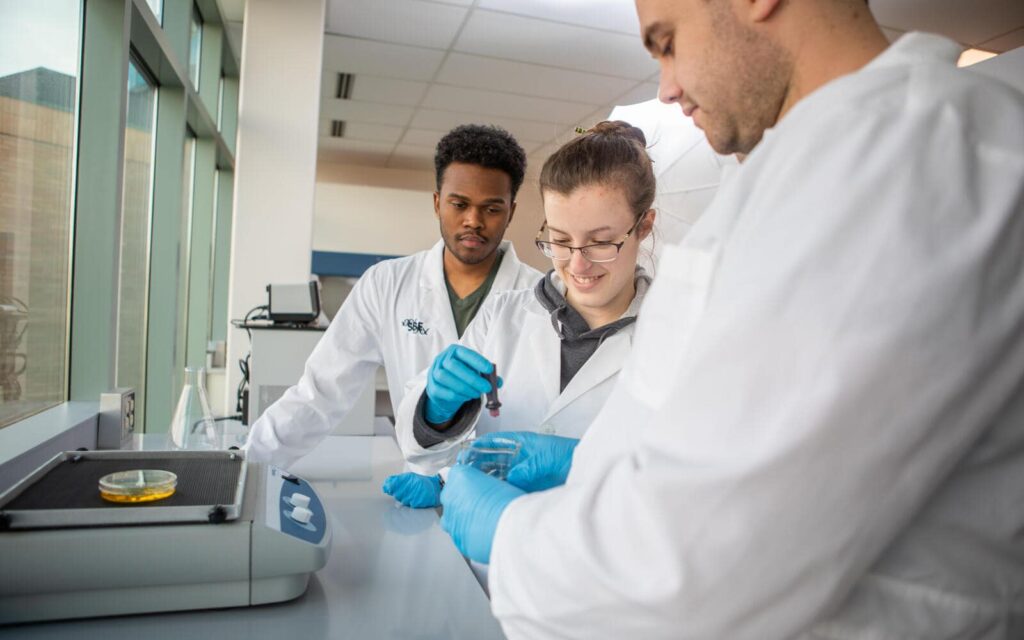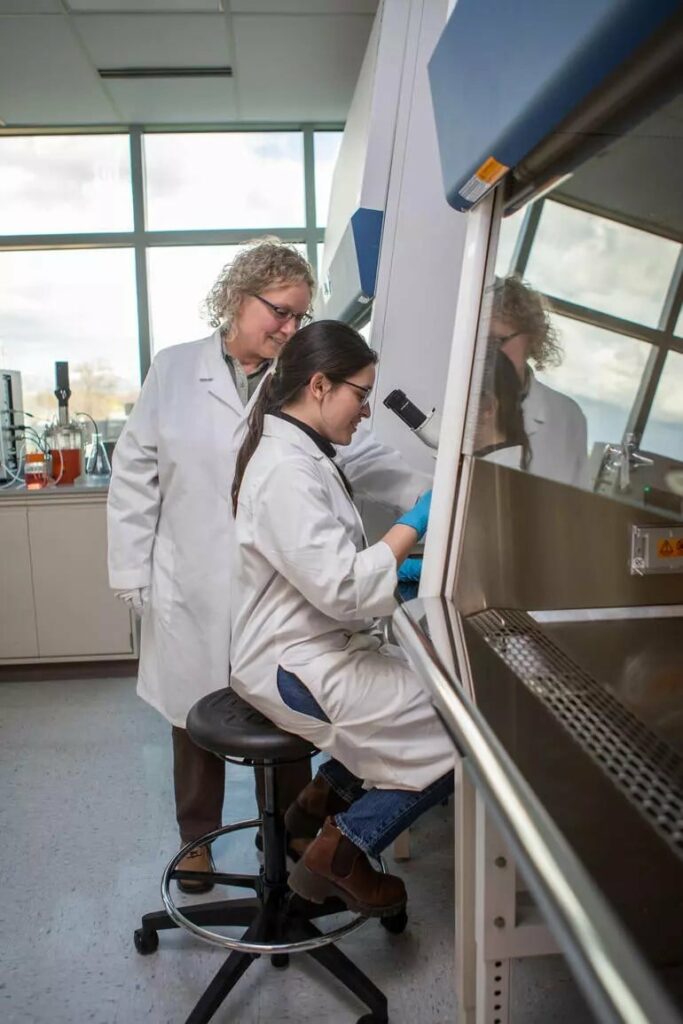Bioengineering Expansion Supports Advanced Research and Learning
New labs equip students with skills needed to thrive in the bioengineering industry.
2 de julio de 2023 | Washington, United States | Emmalani Dodds, North Pacific Union Gleaner, and Adventist Review
At Walla Walla University, students are now actively learning in the School of Engineering’s newly redesigned bioengineering labs. The updated space allows students from multiple majors to engage in sophisticated design and research initiatives. New equipment and renovations were made possible by generous support from Walla Walla University alumni and a US$351,000 grant by the M. J. Murdock Charitable Trust.
More than US$700,000 was invested into the new laboratories, which supported the expansion of the bioengineering concentration. The lab spaces are now operational for research in biomaterials, bioprocessing, and tissue engineering — industries that have all experienced substantial growth in recent years.

At Walla Walla University, students are now actively learning in the School of Engineering’s newly redesigned bioengineering labs. [Photo: Chris Drake]
Janice McKenzie, bioengineering associate professor, said that the new laboratories are substantially improving the research she does with students. The laboratories offer students the chance to study topics not typically taught at the undergraduate level, such as aseptic mammalian cell culture, equipping them with skills highly sought after in the bioengineering industry.
Abbie Underhill, a recent graduate from the School of Engineering, emphasized the importance of hands-on learning in the lab. “I had the opportunity to work with one of the professors on summer research involving cell culture and 3D printing and electric spinning scaffolds,” she said. “Being able to get this hands-on experience really piqued my interest and fueled my desire to pursue a more in-depth study of biological research.” Underhill now works at a biotechnology company, Scientific Bioprocessing Inc., which has lent pilot equipment to the university for feedback.

Redesigned laboratories offer students the chance to be equipped with skills highly sought after in the bioengineering industry, school leaders said. [Photo: Chris Drake]
WWU main campus is located in College Place, Washington, United States. The school has more than 1,350 undergraduate students and 132 graduate students.
Founded in 1892, WWU is founded on Christian teachings and values as understood and appreciated by the Seventh-day Adventist Church. Central to these teachings is the belief that every person is created in the image of God as a being of inestimable value and worth, imbued with powers of intelligence, stewardship, and creativity akin to those of the Creator, the school states.
WWU “seeks in its mission to foster the unique gifts of every individual within this Christian community of faith and discovery,” it states. “Committed to excellence in thought, the university seeks to impart a broad knowledge of the arts, sciences, and professions by careful instruction and open inquiry at both the undergraduate and graduate levels. Recognizing that God is the source of all truth, goodness, and beauty, the university seeks to convey to students a wisdom that translates academic achievement into responsible citizenship, generous service, a deep respect for the beauty in God’s creation, and the promise of re-creation through Jesus Christ.”
The original version of this story was posted on the North Pacific Union Gleaner news site.